I wrote a little bit about No's 25-11 on Twitter [@24FPSUK], and you'll also find those notes on this Letterboxd list, but before we get to the Top 10 in more depth, here's the list of titles.
25: Before Midnight [Richard Linklater, 2013]
24: Confessions [Tetsuya Nakashima, 2010]
23: Summer 1993 [Carla Simon, 2018]
22: Tuesday After Christmas [Radu Muntean, 2010]
21: We Are The Best! [Lukas Moodysson, 2013]
20: The Babadook [Jennifer Kent, 2014]
19: Vox Lux [Brady Corbet, 2018]
18: Phoenix [Christian Petzold, 2014]
17: Mustang [Deniz Gamze Ergüven, 2015]
16: Beast [Michael Pearce, 2017]
15: Alps [Yorgos Lanthimos, 2011]
14: The Spectacular Now [James Ponsoldt, 2013]
13: Heal the Living [Katell Quillévéré, 2016]
12: Melancholia [Lars Von Trier, 2011]
11: Hounds of Love [Ben Young, 2016]
10: Evolution [Lucile Hadzihalilovic, 2015]
It took Lucile Hadzihalilovic a decade to follow up her haunting debut, Innocence, and Evolution is the perfect title for her second film. Beyond its own themes, it represents a companion piece to and a refinement of many elements of Innocence, being set again in a community largely composed of children (this time all boys rather than all girls), cut off from any recognisable real world and monitored only by women.
What could seem like an idyllic existence: kids running free on a beautiful island, soon becomes creepy as we are taken into its inner workings and begin to see strange experiments being conducted on the boys, one of whom forges a connection with one of the nurses (the striking Roxane Duran). Hadzihalilovic's images often have a dreamlike beauty to them, but the evidence of influences like David Cronenberg and Guillermo Del Toro often reshapes that dream into a surrealistic nightmare. Elliptical, strange and disturbing, Evolution gets into your head, inviting many different readings, and repaying multiple viewings.
9: Leave No Trace [Debra Granik, 2018]
Like Lucile Hadzihalilovic, it took Debra Granik a long time to follow up her previous film, which is baffling given that Winter's Bone was successful and launched Jennifer Lawrence's career with an Oscar nomination. Like that film, Leave No Trace - the story of a war veteran father with PTSD and his 13-year-old daughter living off the grid - introduced someone we're going to be seeing a lot more of in New Zealand actress Thomasin McKenzie.
Granik's images are beautiful, she emphasises both the beauty and harshness of nature, but even the toughest aspects of the forest are deliberately contrasted with the hard edges and cold spaces of the towns and cities we see.
McKenzie plays brilliantly off Ben Foster, perhaps the most underrated American actor of his generation, creating a father-daughter relationship that is unconventional but close and caring. Granik often cuts dialogue to the barest minimum, allowing them to communicate largely through looks and gestures, giving us the sense of a deep understanding between the two, even when what they want becomes more in conflict as the film goes on. This may be a simple, quiet film, but it speaks loudly about things as diverse as the love between families, nature and mental illness.
8: In The House [François Ozon, 2012]
25: Before Midnight [Richard Linklater, 2013]
24: Confessions [Tetsuya Nakashima, 2010]
23: Summer 1993 [Carla Simon, 2018]
22: Tuesday After Christmas [Radu Muntean, 2010]
21: We Are The Best! [Lukas Moodysson, 2013]
20: The Babadook [Jennifer Kent, 2014]
19: Vox Lux [Brady Corbet, 2018]
18: Phoenix [Christian Petzold, 2014]
17: Mustang [Deniz Gamze Ergüven, 2015]
16: Beast [Michael Pearce, 2017]
15: Alps [Yorgos Lanthimos, 2011]
14: The Spectacular Now [James Ponsoldt, 2013]
13: Heal the Living [Katell Quillévéré, 2016]
12: Melancholia [Lars Von Trier, 2011]
11: Hounds of Love [Ben Young, 2016]
10: Evolution [Lucile Hadzihalilovic, 2015]
It took Lucile Hadzihalilovic a decade to follow up her haunting debut, Innocence, and Evolution is the perfect title for her second film. Beyond its own themes, it represents a companion piece to and a refinement of many elements of Innocence, being set again in a community largely composed of children (this time all boys rather than all girls), cut off from any recognisable real world and monitored only by women.
What could seem like an idyllic existence: kids running free on a beautiful island, soon becomes creepy as we are taken into its inner workings and begin to see strange experiments being conducted on the boys, one of whom forges a connection with one of the nurses (the striking Roxane Duran). Hadzihalilovic's images often have a dreamlike beauty to them, but the evidence of influences like David Cronenberg and Guillermo Del Toro often reshapes that dream into a surrealistic nightmare. Elliptical, strange and disturbing, Evolution gets into your head, inviting many different readings, and repaying multiple viewings.
9: Leave No Trace [Debra Granik, 2018]
Like Lucile Hadzihalilovic, it took Debra Granik a long time to follow up her previous film, which is baffling given that Winter's Bone was successful and launched Jennifer Lawrence's career with an Oscar nomination. Like that film, Leave No Trace - the story of a war veteran father with PTSD and his 13-year-old daughter living off the grid - introduced someone we're going to be seeing a lot more of in New Zealand actress Thomasin McKenzie.
Granik's images are beautiful, she emphasises both the beauty and harshness of nature, but even the toughest aspects of the forest are deliberately contrasted with the hard edges and cold spaces of the towns and cities we see.
McKenzie plays brilliantly off Ben Foster, perhaps the most underrated American actor of his generation, creating a father-daughter relationship that is unconventional but close and caring. Granik often cuts dialogue to the barest minimum, allowing them to communicate largely through looks and gestures, giving us the sense of a deep understanding between the two, even when what they want becomes more in conflict as the film goes on. This may be a simple, quiet film, but it speaks loudly about things as diverse as the love between families, nature and mental illness.
8: In The House [François Ozon, 2012]
Ernst Umhauer is excellent as Claude, a student who begins writing stories about his middle class school friend and his parents (Emmanuelle Seigner and Denis Menochet), drawing his literature teacher Germain (Fabrice Luchini) into the narrative. As teacher and student begin to shape the story, we become less able to tell which of the film's events are the result of Claude ingratiating himself into this richer family's home and which he simply conjures whole cloth on the page.
Ozon makes sly commentary on class, both through Claude's story and by contrasting Germain and his wife (Kristin Scott Thomas) with the couple they are avidly reading about, as well as making broad jokes about storytelling, particularly as Germain increasingly pops up in Claude's stories, suggesting changes even as we're watching what he's relating unfold. Witty, rigorous, sometimes sinister and cleverly constructed, this is a wonderful tightrope walk of a film.
7: Hagazussa [Lukas Fiegelfeld, 2017]
The imagery is stunning yet unsettling. The beauty set against the horror is perfectly captured in one cross fade, after Albrun visits a local church made largely from bones the image of a skull dissolves into a wide shot of the mountains, and from there the film becomes ever more reliant on image over dialogue. The unsettling nature of the film is enhanced by a droning score from MMMD, which compliments the increasingly dark and doomy feel that Fiegelfeld's images impart. For me this isn't so much a film about story as it is about mood, image and effect. It should be seen on a big screen, so the atmosphere can envelop you, and once it does it truly gets under the skin.
6: Girlhood [Celine Sciamma, 2014]
Celine Sciamma has had an astonishing decade and had her new film, Portrait of a Lady on Fire, opened in time it would be even higher up this list. Girlhood closes her coming of age trilogy. Perhaps less personal than her earlier coming of age films, given that it takes place in a black community in the Paris banlieues, this film shows Sciamma's growth as a director, being easily her most visually accomplished work to this point.
Most films about youth gangs are about crime, but Sciamma is more interested in exploring female friendship and group dynamics here, as we see Marieme (Karidja Touré) slowly get absorbed into a small gang led by Lady (the hugely charismatic Assa Sylla). Throughout the first hour of the film we see Marieme become more and more part of the group, a sense of camaraderie grows with every passing scene up until the film's centrepiece; a sequence in which the girls, all dressed up in a hotel room, dance and mime to Rhianna's Diamonds. It's a perfect encapsulation of the process we've seen in the film so far and a perfect, but passing, moment.
Sciamma structures the film brilliantly, with each of the five acts finishing on shots that rhyme with each other, building her main character up, evolving her scene by scene, but never forgetting that coming of age is a process, and one that isn't done in the film's final frames, which are in some ways triumphant, but also, to my mind, showing someone still torn and with doubts. It's a complex and compelling moment to leave a character at, and a great encapsulation of the film.
5: Love Like Poison [Katell Quillévéré, 2010]
Katell Quillévéré's second entry on my top 25, her debut and, in a great decade for French and female directed coming of age films, the best of both. A deeply personal film that draws on her own experiences, Love Like Poison sees Clara Augarde's Anna deal with her grandfather's illness, her first crush and her changing relationship to her and her family's catholic faith in the run up to her confirmation. In the background is another moving story of her priest (Stefano Cassetti) who seems to be going through his own crisis of faith.
Quillévéré balances the story's many elements beautifully and draws sensitive and unaffected performances from her cast, giving the whole film a very intimate and observed feel. At the same time though, there is an impressive sense of visual composition. There are moments of quiet anger directed at the church and its attitude to young girls going through the moments Anna is experiencing, but it's never hectoring. In the tradition of many of the best coming of age films, Love Like Poison's dramas are everyday, but powerfully felt in the filmmaking.
4: Stop the Pounding Heart [Roberto Minervini, 2011]
Most films about youth gangs are about crime, but Sciamma is more interested in exploring female friendship and group dynamics here, as we see Marieme (Karidja Touré) slowly get absorbed into a small gang led by Lady (the hugely charismatic Assa Sylla). Throughout the first hour of the film we see Marieme become more and more part of the group, a sense of camaraderie grows with every passing scene up until the film's centrepiece; a sequence in which the girls, all dressed up in a hotel room, dance and mime to Rhianna's Diamonds. It's a perfect encapsulation of the process we've seen in the film so far and a perfect, but passing, moment.
Sciamma structures the film brilliantly, with each of the five acts finishing on shots that rhyme with each other, building her main character up, evolving her scene by scene, but never forgetting that coming of age is a process, and one that isn't done in the film's final frames, which are in some ways triumphant, but also, to my mind, showing someone still torn and with doubts. It's a complex and compelling moment to leave a character at, and a great encapsulation of the film.
5: Love Like Poison [Katell Quillévéré, 2010]
Katell Quillévéré's second entry on my top 25, her debut and, in a great decade for French and female directed coming of age films, the best of both. A deeply personal film that draws on her own experiences, Love Like Poison sees Clara Augarde's Anna deal with her grandfather's illness, her first crush and her changing relationship to her and her family's catholic faith in the run up to her confirmation. In the background is another moving story of her priest (Stefano Cassetti) who seems to be going through his own crisis of faith.
Quillévéré balances the story's many elements beautifully and draws sensitive and unaffected performances from her cast, giving the whole film a very intimate and observed feel. At the same time though, there is an impressive sense of visual composition. There are moments of quiet anger directed at the church and its attitude to young girls going through the moments Anna is experiencing, but it's never hectoring. In the tradition of many of the best coming of age films, Love Like Poison's dramas are everyday, but powerfully felt in the filmmaking.
4: Stop the Pounding Heart [Roberto Minervini, 2011]
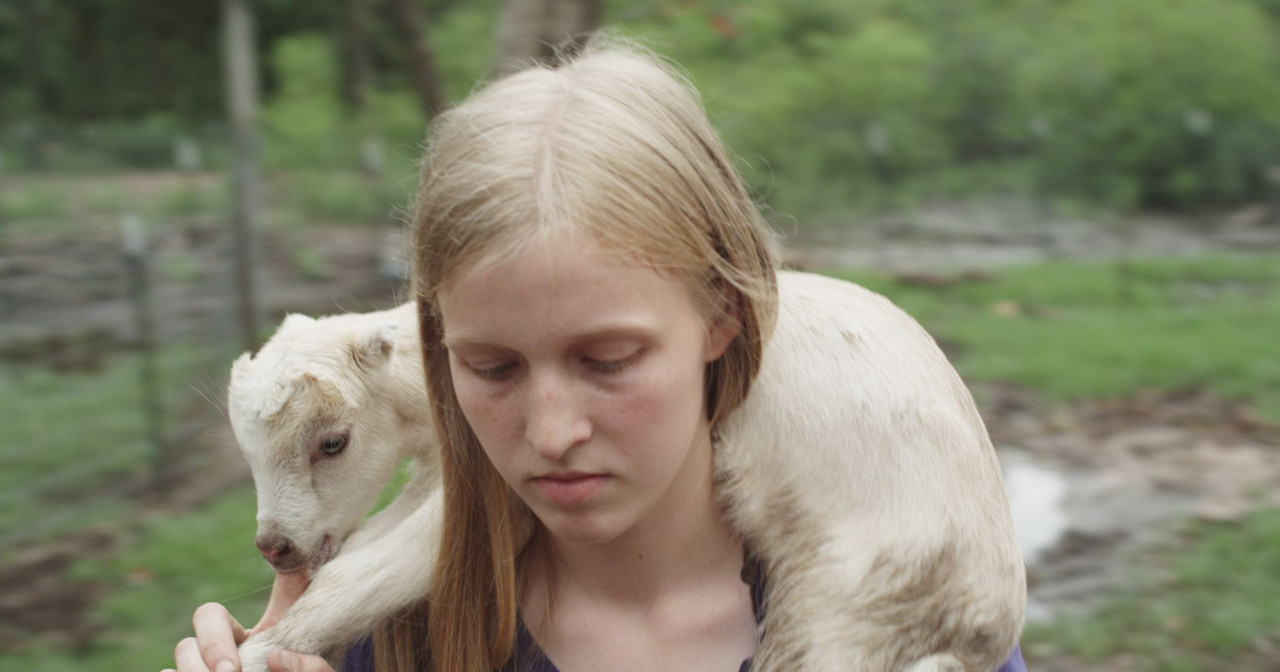
Roberto Minervini looks at rural America with a curious but never condescending eye in this documentary that feels so much like a coming of age story you could mistake it for a brilliantly acted fiction film. Sara Carlson lives with her fundamentalist Christian family in Texas. She's been homeschooled and is now helping teach her many younger siblings the same lessons in the Bible and in how to work the goat farm they live on, producing milk and cheese for farmers markets. We watch Sara and her family go about their daily lives and while Sara seems mostly content, there are moments that she has questions about the beliefs she's been raised with, perhaps some of them coming from what seems to be a burgeoning attraction to Colby, a kid from the neighbouring farm.
Minervini's style; artistically and beautifully framed, but also with a great sense of unobtrusive observation, allows us to simply drop in on this family's life, and those of the people around them. The film feels like a pointed lesson in empathy. I imagine I'd find little in common, politically or in any other philosophical sense, with the Carlson family, but still, there is the overwhelming sense of good people doing the best they can for their children. This does sometimes rub up against what many of us, myself included, might see as damaging teachings but even when, late in the film, the conversation that gives it its title occurs, the feeling is more one of sadness, and of fear that a young person as vibrant and curious as Sara may be missing out on so many experiences, rather than one of judgement. For a film as unobtrusive as it is on face value, Stop the Pounding Heart is a complicated watch, and all the better for it.
3: Jess + Moss [Clay Jeter, 2011]
Jess + Moss feels as delicate as the grainy, expired, super 16 stock it was shot on. That visual choice gives Clay Jeter's film a timeless feel, it could be set any time from the 70s onwards, and feels like a hazy reminiscence of a summer remembered fondly; the last moments of childhood, just getting a little fuzzy from the view of an adult trying to recall them (memory being a recurring theme).
The friendship between Sarah Hagan's Jess, who is probably supposed to be about 17, and Austin Vickers' roughly 11-year-old Moss is at once slightly odd and very real. We get the sense that Jess is trying to stay a kid just a little while longer and that Moss is longing to grow up just a little, their dynamic meeting in the middle. The two are also pulled together by the fact their parents are missing, and this motivates both of them in ways that ring true for their larger characters. Again, this isn't a film big on incident, the moments are small and intimate, but the performances and Jeter's imagery (owing more than little to Terence Malick) make them vivid and transporting.
2: The Neon Demon [Nicolas Winding Refn, 2016]
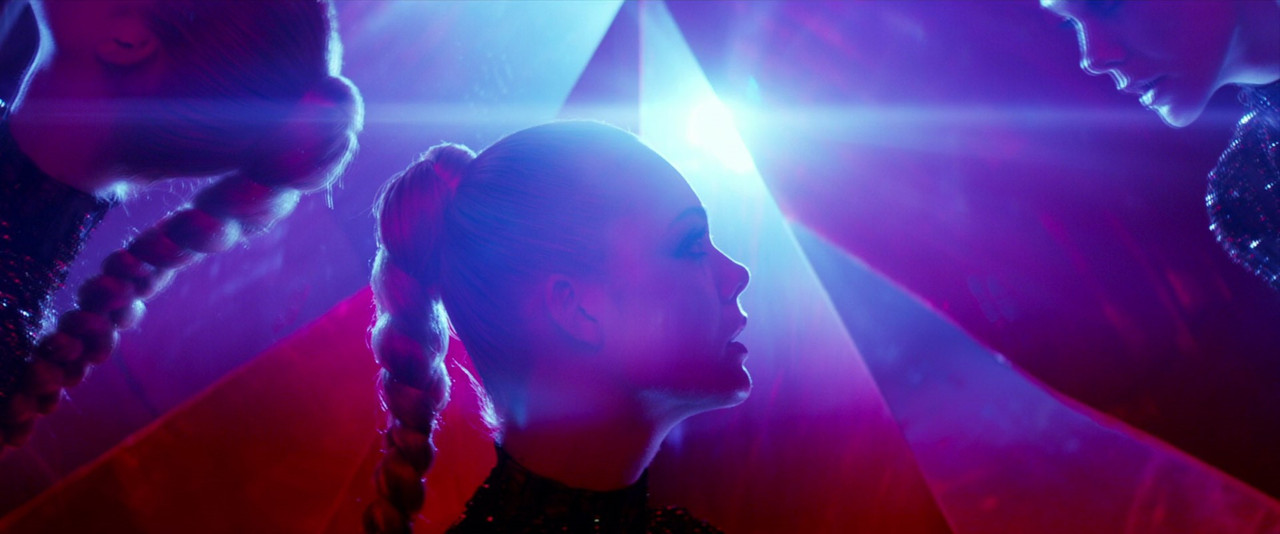 In some ways I'm surprised to find this so far up my list. This is the only film of Nicolas Winding Refn's I'm a fan of, but where most of his work screams style over substance to me, the setting and subject matter of The Neon Demon - the story of a young model (Elle Fanning seduced and swallowed up by the LA fashion industry, rendered as a neon-lit Giallo homage - means that its style is what gives it substance. In many ways Refn's stylistic verve set against what I see as the emptiness of the others I've seen of his films is what makes him the perfect fit for this one: he IS the problem he's diagnosing here.
In some ways I'm surprised to find this so far up my list. This is the only film of Nicolas Winding Refn's I'm a fan of, but where most of his work screams style over substance to me, the setting and subject matter of The Neon Demon - the story of a young model (Elle Fanning seduced and swallowed up by the LA fashion industry, rendered as a neon-lit Giallo homage - means that its style is what gives it substance. In many ways Refn's stylistic verve set against what I see as the emptiness of the others I've seen of his films is what makes him the perfect fit for this one: he IS the problem he's diagnosing here.
As incredible as the stylisation is here, as much as Cliff Martinez pulsating electro score adds, as effective as the Cronenberg and Argento homages are, the film would be nothing but a shell without Elle Fanning's incredible performance. Just 16 at shooting, she's convincing as the innocent sucked into the seedy belly of a beast that must be fed, but also compellingly evolves until she has to some degree become that beast; a process we can imagine that her fellow models (Abbey Lee and Bella Heathcote, also excellent) must have gone through just a few years ago. Refn's metaphor here isn't subtle or novel, but it's effective and wrapped up in the creation of a whole world. It may just be that all the right ingredients - even ones that don't usually work for me - came together perfectly here, but The Neon Demon has never stopped evolving as I watch it over and over and that why it's landed where it has on this list.
1: The New Girlfriend [François Ozon, 2014]

As incredible as the stylisation is here, as much as Cliff Martinez pulsating electro score adds, as effective as the Cronenberg and Argento homages are, the film would be nothing but a shell without Elle Fanning's incredible performance. Just 16 at shooting, she's convincing as the innocent sucked into the seedy belly of a beast that must be fed, but also compellingly evolves until she has to some degree become that beast; a process we can imagine that her fellow models (Abbey Lee and Bella Heathcote, also excellent) must have gone through just a few years ago. Refn's metaphor here isn't subtle or novel, but it's effective and wrapped up in the creation of a whole world. It may just be that all the right ingredients - even ones that don't usually work for me - came together perfectly here, but The Neon Demon has never stopped evolving as I watch it over and over and that why it's landed where it has on this list.
1: The New Girlfriend [François Ozon, 2014]
The prolific François Ozon had a weird decade. After many years of being a huge fan, I found him stumbling many times, delivering several of his very worst films (though he's recovered some form with the solid if anonymous By the Grace of God), but in between those he made his two best films, both in this top 10. The New Girlfriend feels like a culmination the ultimate evolution of every theme Ozon has been playing with throughout his career.
The dynamics of the story (adapted from a short story by Ruth Rendell) are complicated. When Claire's (Anaïs Demoustier) lifelong best friend Laura (Isild LeBesco) dies, Claire discovers that Laura's husband David (Romain Duris) has again taken up a habit of dressing as a woman. Soon, Claire and David, in his female persona of Virginia, begin getting closer and David begins to feel more comfortable as Virginia than he does as the man he's always presented as.
Ozon's slipperly approach to gender and sexuality is on full display here, not just in the David and Virginia personas, but in the film's design (Claire is almost always dressed in trousers and a collar; a more stereotypically masculine look than the outwardly glam Virginia) and in several of the scenes between Claire and her husband (Raphaël Personnaz), notably a sex scene in which Claire takes care of her own pleasure, then simply rolls off him to go to sleep. Most significant though is a sex scene between Claire and Virginia, which becomes essentially a two person threesome. It's a stunning moment; a masterclass in using intimacy to advance story and character and a sequence shot through with Ozon's auteurism.
The film has scenes that hit you in the heart (Demoustier singing a song to Durris, for instance), but Ozon remains playful, light and funny as well, capturing the thrill of this new person that Claire suddenly has in her life to fill the void that Laura has left, which is something we appreciate through the film's first 10 minutes, which feel like Ozon's take on the beginning of Up and are just as joyous and as sad. While Duris has the showier part, and is brilliant, never overplaying, repeat viewings reveal the subtle work that Anaïs Demoustier does as the film's lynchpin. She can draw a laugh or a tear with a look, delivering huge amounts of character information in small adjustments.
There is simply too much to say about how great this film is, and it's another that only grows and reveals more on each rewatch. It is, and on recent evidence is likely to remain, Ozon's masterpiece.
The dynamics of the story (adapted from a short story by Ruth Rendell) are complicated. When Claire's (Anaïs Demoustier) lifelong best friend Laura (Isild LeBesco) dies, Claire discovers that Laura's husband David (Romain Duris) has again taken up a habit of dressing as a woman. Soon, Claire and David, in his female persona of Virginia, begin getting closer and David begins to feel more comfortable as Virginia than he does as the man he's always presented as.
Ozon's slipperly approach to gender and sexuality is on full display here, not just in the David and Virginia personas, but in the film's design (Claire is almost always dressed in trousers and a collar; a more stereotypically masculine look than the outwardly glam Virginia) and in several of the scenes between Claire and her husband (Raphaël Personnaz), notably a sex scene in which Claire takes care of her own pleasure, then simply rolls off him to go to sleep. Most significant though is a sex scene between Claire and Virginia, which becomes essentially a two person threesome. It's a stunning moment; a masterclass in using intimacy to advance story and character and a sequence shot through with Ozon's auteurism.
The film has scenes that hit you in the heart (Demoustier singing a song to Durris, for instance), but Ozon remains playful, light and funny as well, capturing the thrill of this new person that Claire suddenly has in her life to fill the void that Laura has left, which is something we appreciate through the film's first 10 minutes, which feel like Ozon's take on the beginning of Up and are just as joyous and as sad. While Duris has the showier part, and is brilliant, never overplaying, repeat viewings reveal the subtle work that Anaïs Demoustier does as the film's lynchpin. She can draw a laugh or a tear with a look, delivering huge amounts of character information in small adjustments.
There is simply too much to say about how great this film is, and it's another that only grows and reveals more on each rewatch. It is, and on recent evidence is likely to remain, Ozon's masterpiece.

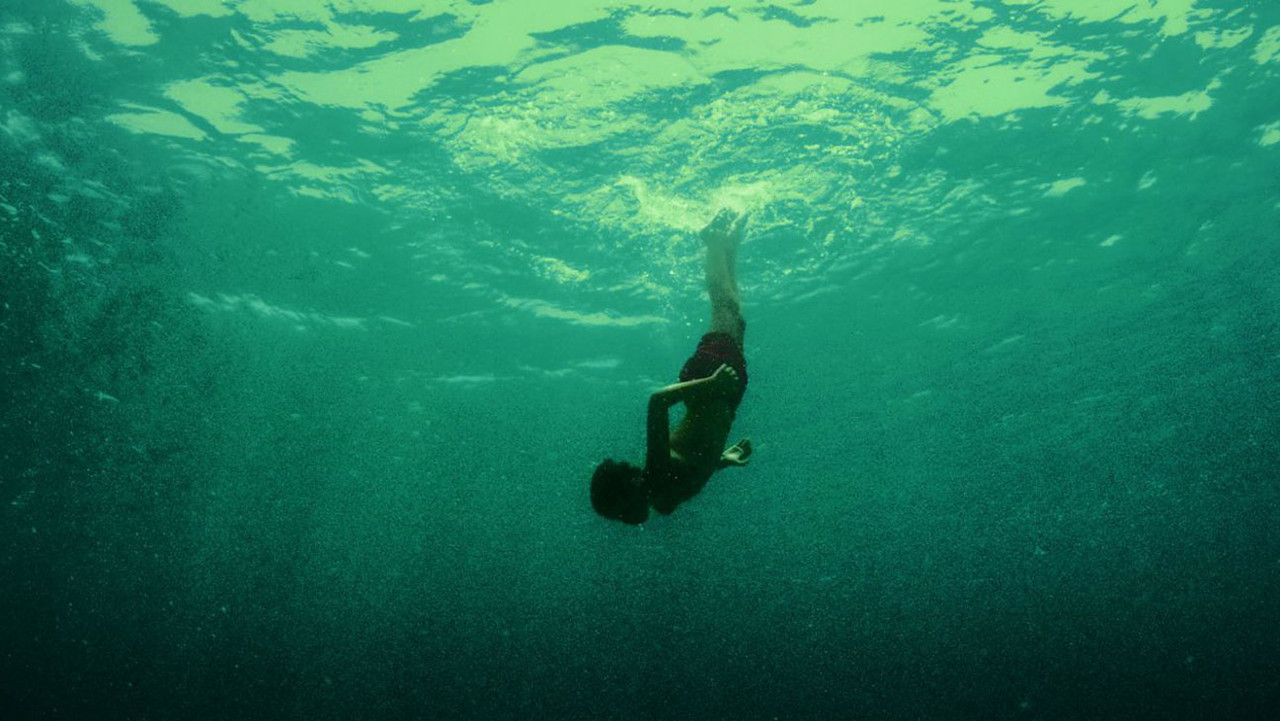
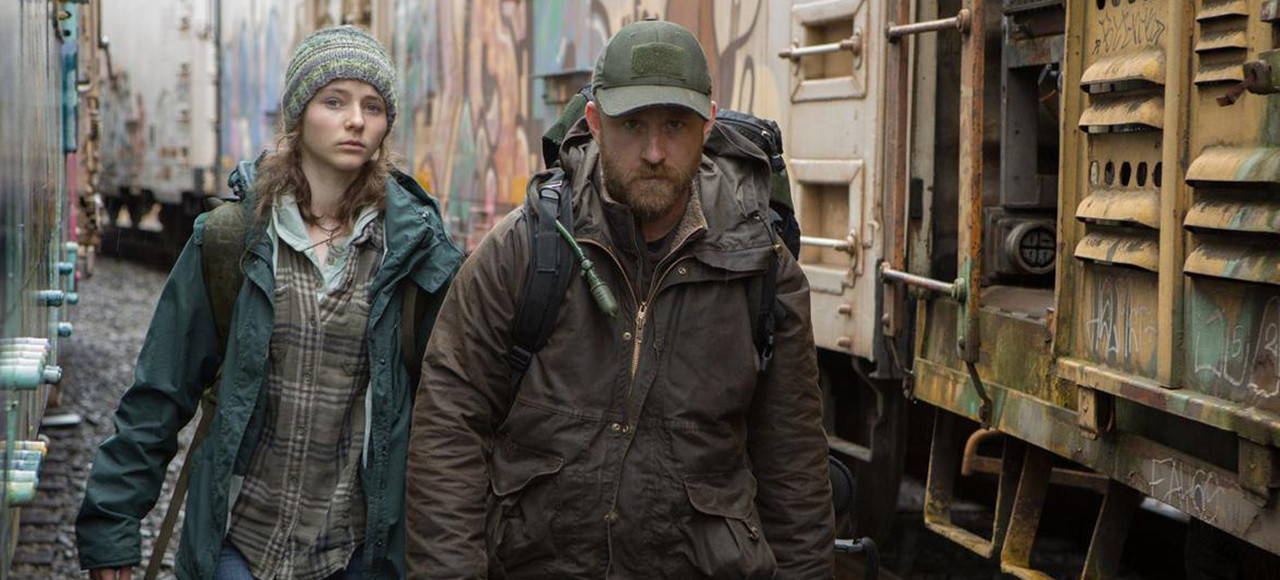
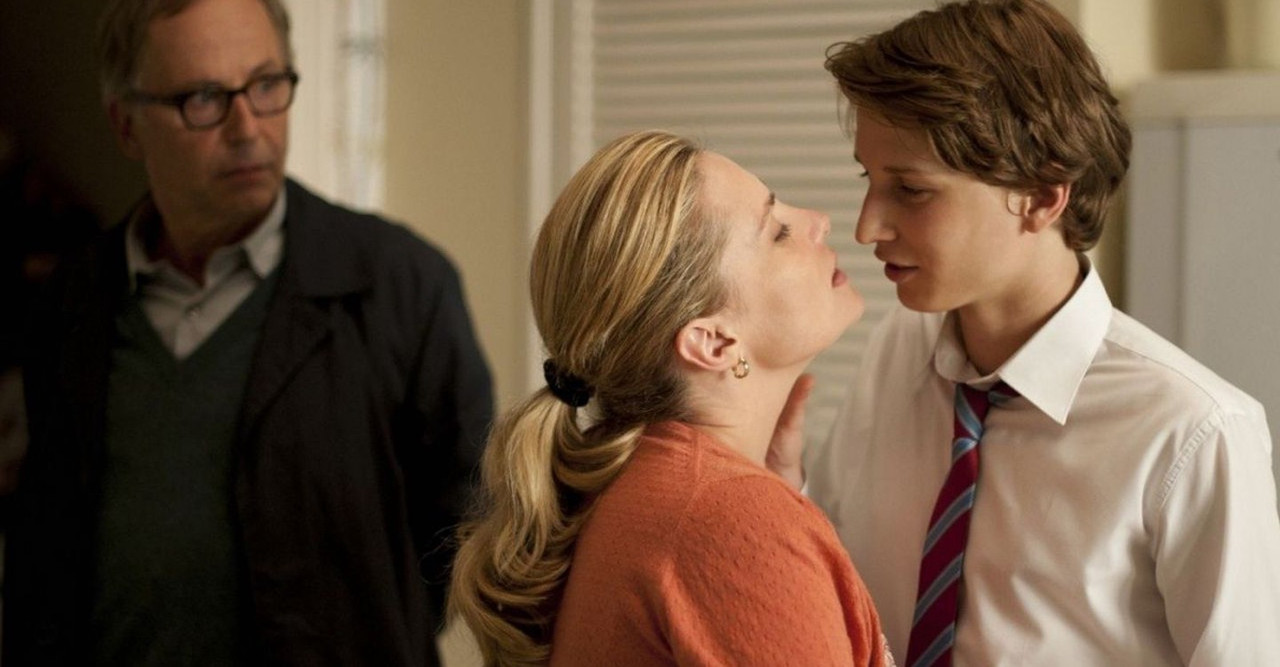

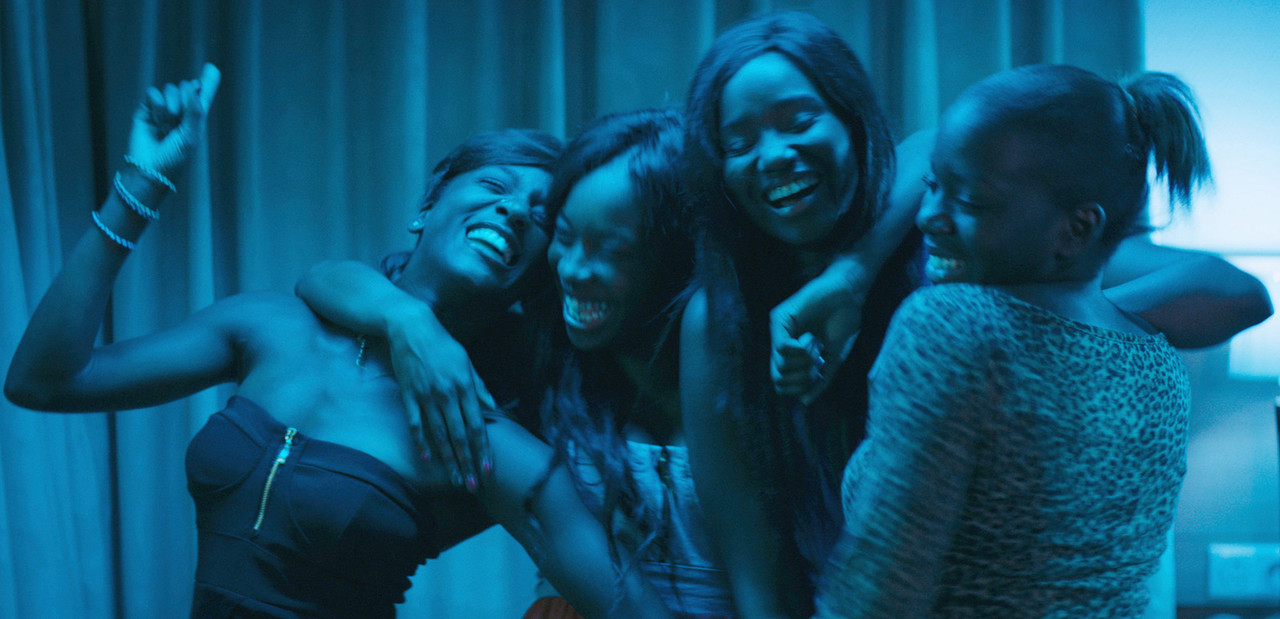
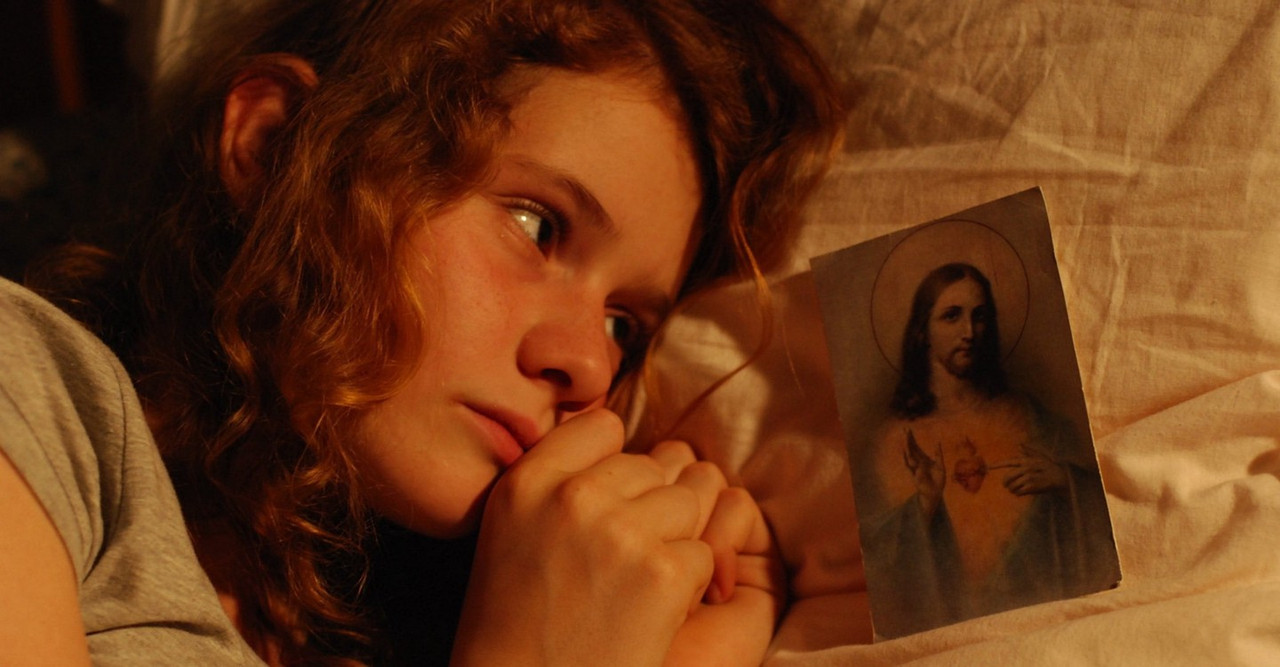


No comments:
Post a Comment